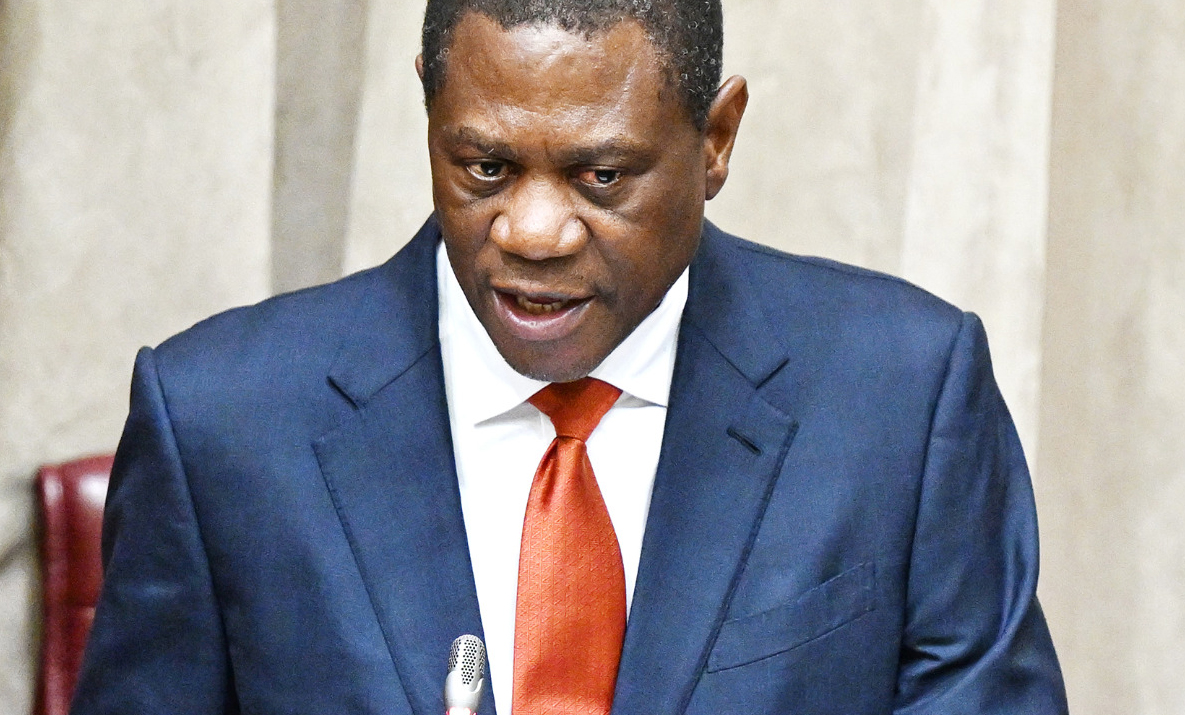Taking questions in the National Council of Provinces on Thursday, Deputy President Paul Mashatile said Pretoria was “not aware of any human rights violations” by the governments of neighbouring Mozambique and Zimbabwe.
This is despite Mozambique facing its worst post-election violence to date, with protests continuing in the southern African country, sometimes violently suppressed by security forces, after claims of massive fraud in the 9 October legislative and presidential elections.
Regional bodies like the Southern African Development Community (SADC) and the African Union (AU) have been called on by activists and human rights organisations to intervene in the post-election unrest in the country.
“We, through our diplomatic engagements and as part of SADC, continue to engage with our sister countries on a variety of issues, including socioeconomic development and broader management,” Mashatile told delegates.
“We know too well that lack of stability in the SADC region has an impact on the South African economy; hence, through our diplomatic channel, we are engaging with the people of Mozambique to find a lasting solution to the current situation as a result of the recent election.”
Read more: ‘Maputo is like a warzone’ — Activists lament global inaction as protest and state suppression deepen in Mozambique
Mashatile said South Africa continued “to call for calm and utmost restraints while urging all political parties and their supporters to allow due process to be completed in the overall supreme interest of stability in Mozambique”.
We continue to call for calm and utmost restraint while urging all political parties and their supporters to allow due-process to be completed in the overall supreme interest of stability in Mozambique.
As a member of SADC, we will further support all initiatives that are aimed…
— The Presidency ?? (@PresidencyZA) December 5, 2024
In October, the Mozambican electoral authorities declared as winners the ruling Frelimo party, in power since Mozambique’s independence from Portugal in 1975, and its presidential candidate, Daniel Chapo, after they garnered more than 70% of the vote.
Opposition candidate Venâncio Mondlane and his Podemos party rejected the results, insisting that they had won based on a parallel voter tabulation of results from individual polling stations.
Credibility questioned
Independent election observers, including the Episcopal Conference of Mozambique and the European Union, have questioned the credibility of the polls, reporting election rigging, including ballot box stuffing.
However, the SADC Election Observer Mission (SEOM) gave the Mozambican elections a pass in its preliminary report, finding no glaring issues. The South African government has previously said it will largely be guided by the observer missions of SADC and the AU.
Read more: Assassinations, fraud and intimidation mark Mozambique’s 2024 elections
In the wake of the country’s disputed polls, protesters heeded Mondlane’s call for demonstrations. At least 40 people have been killed and 1,000 injured in protests to which authorities have responded with rubber bullets, live ammunition and tear gas, and widespread government-mandated internet restrictions, Daily Maverick’s Lerato Mutsila reported.
 Youths walk past burning barricades during a protest in Maputo, Mozambique on 4 December. (Photo: Luisas Nhantumbo / EPA-EFE)
Youths walk past burning barricades during a protest in Maputo, Mozambique on 4 December. (Photo: Luisas Nhantumbo / EPA-EFE)
At an extraordinary SADC Summit on 20 November, regional leaders met in Harare, Zimbabwe, to discuss regional security challenges. Mashatile told delegates on Thursday, that it was “a very good meeting”, adding that outgoing Mozambican President Filipe Nyusi was present to brief the leaders on the situation in the country.
“The summit was convened precisely to discuss how best we can respond to the current challenges in the DRC [Democratic Republic of the Congo], as well as recent violence after the election in Mozambique,” said Mashatile.
However, Daily Maverick’s Peter Fabricius reported that the leaders at the summit devoted most of their time to the instability in the eastern DRC, saying very little about the ongoing crisis in Mozambique. It’s clear that the SADC leaders embraced Nyusi’s version that everything was progressing smoothly until the election results were announced, at which point Mondlane resorted to violence due to his defeat.
Asked on Thursday by DA delegate Nicolaas Pienaar whether he would publicly condemn the ongoing violence of civil liberties, including freedom of speech, occurring in Zimbabwe and Mozambique, Mashatile side-stepped the question.
“If you ask me, Honourable Pienaar, am I willing to ensure that the people of Zimbabwe enjoy equal human rights; that they have elections in an environment that is free and peaceful… My answer is yes, I’ll work hard to support that. But we have to engage the leaders of these countries. When you just rush to condemn, they close their doors and you are not able to resolve them,” he said.
“The overriding factor as we look at this conflict is to allow space for people to enjoy human rights, to be able to have free, fair elections and to the extent that we have not, ourselves, received official complaints in SADC, we will not rush to condemn anybody.
“Sometimes when you condemn people they harden their attitude, but when you engage with them they open up and they accept mediation and we are able to resolve the problem,” said Mashatile.
However, EFF delegate Khanya Ceza said South Africa’s policy of “constructive engagement or quiet diplomacy has been a source of concern”.
In response, Mashatile said the situation in Mozambique was a “matter of concern” to SA, but he stopped short of explicitly condemning the Mozambican government.
“We do condemn violence wherever it takes place… But we shouldn’t rush to condemn specific people or specific leaders. That doesn’t mean we tolerate violence. And also protests must be allowed as long as it’s peaceful. If protests are not peaceful, it has to be condemned.” DM




 Youths walk past burning barricades during a protest in Maputo, Mozambique on 4 December. (Photo: Luisas Nhantumbo / EPA-EFE)
Youths walk past burning barricades during a protest in Maputo, Mozambique on 4 December. (Photo: Luisas Nhantumbo / EPA-EFE) 